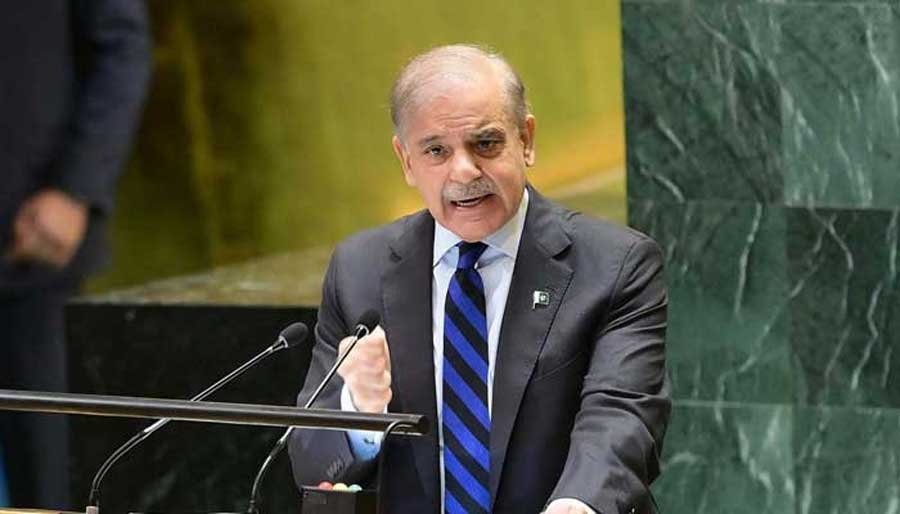Prime Minister Shahbaz Sharif, at the 79th United Nations General Assembly in September 2025, talked about how Pakistan is trying to reshape its place in a broken global order. His speech showed Pakistan is ready to bridge the rifts through negotiations, trade agreements and climate action. The difference this year from the past was that Pakistan called for global cooperation supported by real actions.
One of the important moments in his speech was his appeal to restart composite comprehensive dialogue with India on all issues, like Jammu and Kashmir. For years, Pakistan spoke for the Kashmir issue at the United Nations (UN), but with no results. But this time, Pakistan focused on the UN Security Council and international law, whilst saying it is ready for negotiations with India if the talks are well structured and meaningful. After the abrogation of Article 370 in 2019, which revoked the Kashmir special status, the tensions increased. Prime Minister Shahbaz Sharif said Pakistan does not want constant conflict and is ready to reduce tensions through dialogue.
Pakistan has also used Humanitarian diplomacy (negotiations, dialogues and advocacy) to promote unity. In the case of Gaza, its actions have supported its words. In the past year, Pakistan supported the Palestinians with 18 consignments of humanitarian aid, including 1800 tons of basic essential supplies and medicines. Pakistan helped sponsor the UN resolution that called for an instant and lasting ceasefire in Gaza with the support of 149 countries. Pakistan criticised attacks on medical facilities as illegal under humanitarian law and demanded justice on such issues. Pakistan is not only expressing sympathy but also helping in bringing countries together on humanitarian principles, even though the Security Council is in deadlock. Pakistan also welcome the Gaza ceasefire reached in January 2025 and calls for immediate and full implementation.
Climate Change has become a central part of the diplomatic signaling of Pakistan. In 2022, massive floods inundated one-third of Pakistan, displacing millions of people and causing over $30 billion in damage. Despite less than 1% contribution to global Greenhouse gas (GHG) emissions, Pakistan is working to turn its weakness into an opportunity for world leadership instead of gaining sympathy. At the UN SDG Investment Fair in April 2023, Pakistan presented $2.84 billion for climate resilience, such as microfinance for vulnerable communities, and clean energy projects. Under the Global Shield Initiative, Pakistan also wrapped up disaster risk finance actions. At COP29, Pakistan launched its first National Finance Strategy to support future investments and mitigation projects. These initiatives position Pakistan as a trustworthy partner in global climate decision-making. After the 2025 floods in Pakistan, in which 3.5 million People were displaced, Pakistan didn’t look for sympathy but turned the crisis into action by rebuilding with its own resources and partners.
Economic diplomacy has also been a main point in recent Pakistan-UN engagement. During the visit to the United States to attend the UN session, Prime Minister Shahbaz Sharif met President Donald Trump and invited American companies to invest in Pakistan’s technology, agriculture, minerals and energy. Islamabad recently held a Minerals Investment Forum to promote Pakistan’s untapped reserves of gold and copper with the participation of China, Saudi Arabia and the United States. Meanwhile, the World Bank announced a ten-year $20 billion plan to support clean and green energy and digital infrastructure projects. These actions of Pakistan show that Pakistan wants its diplomacy to be based on mutual interest, not to stay dependent.
Pakistan’s resilience on international law adds strength to its message of unity. In January 2025, it told the UN that Israeli attacks on Gaza hospitals were illegal and should be independent investigation. Pakistan has repeatedly raised attention over nuclear risks in South Asia, urging world powers to support direct and secure communication on the safety of the region. Such prospects may be politically disputed but are assisted by legal standards that give Pakistan a principled platform to defend its case. However, despite the positive intentions of the Government, challenges persist that are a major hindrance to implementing policies. For example, regarding climate finance, provinces do not spend according to their budgets.
The talk with India cannot move ahead without reciprocity, and the efforts of humans are drained by the donor collapse and the global rivalries. The actual test is how Pakistan is transferring its plan into real actions. They should show real projects for global mechanisms, such as humanitarian corridors and cooperation with the Global South countries, to strengthen their voice. Pakistan’s foreign policy needs the support of the domestic cross-party support to stay strong and consistent. The talk of Shahbaz Sharif at the UN was the start of a new diplomatic engagement. By promoting dialogue with India and investing in climate projects, Pakistan is working to join a divided world. If Pakistan turns its actions into words, then its role in the UN will go beyond speeches. This will help to bring the divided countries together through real efforts.
This article was published in another form at https://thediplomaticinsight.com/pak-at-un-bridging-global-divides/
Shahwana Binte Sohail is is Research Assistant at the Centre for International Strategic Studies Islamabad.

